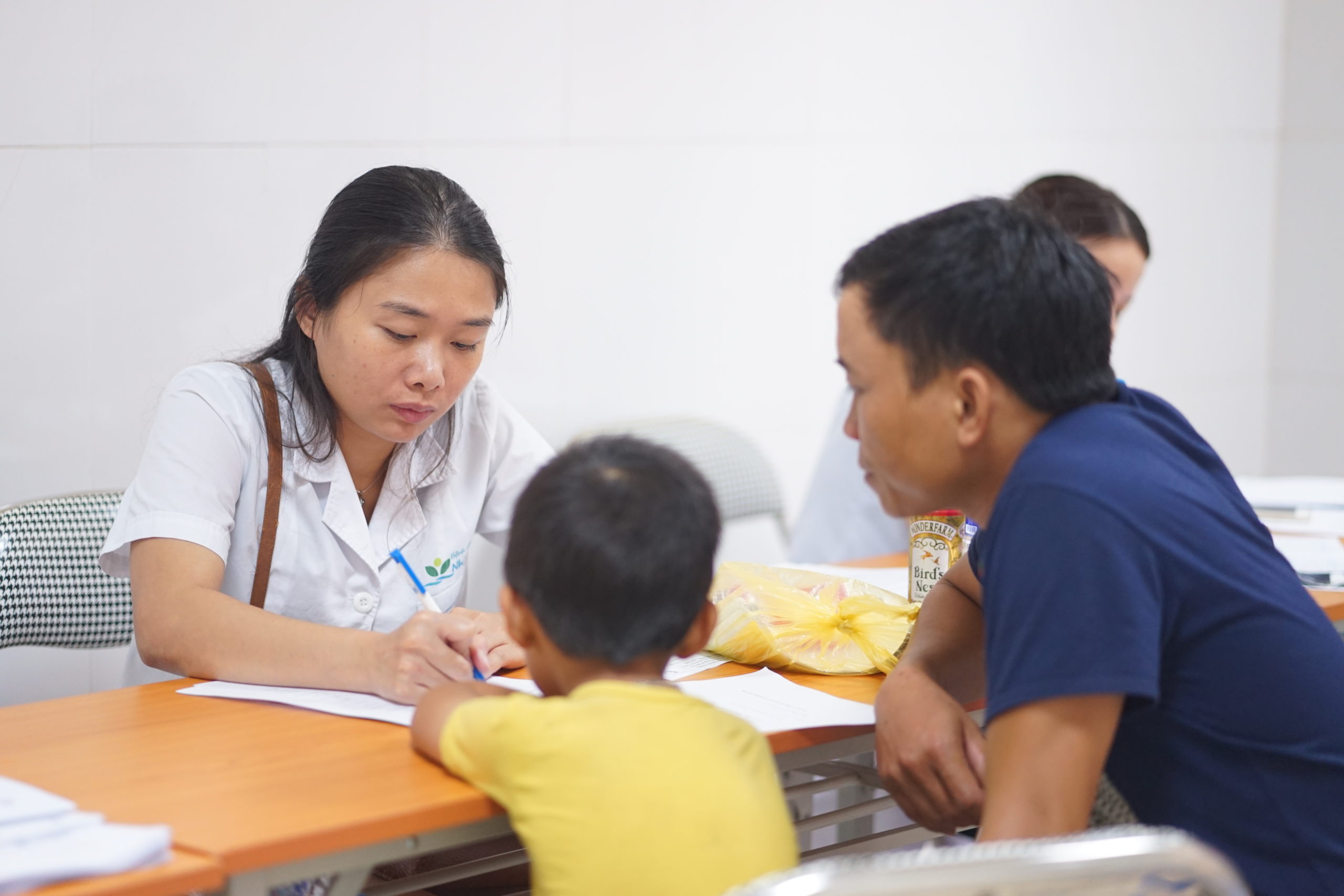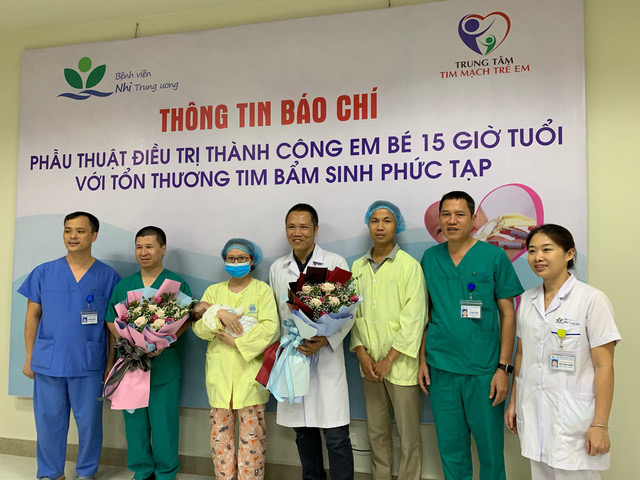Published December 3, 2020
Head nurse Mai Huong Tran from National Children’s Hospital in Hanoi balances her primary tasks of caring for young patients, managing and educating nurses, and her passion for supporting parents after they bring their children home after surgery. 2020: The Year of the Nurse is significantly more challenging for essential health workers like Mai because of the pandemic. Mai shares her story with us: why she became a nurse and parent educator, how the pandemic has changed her work and why her team needs even more support during this difficult time.
Mai: Parents of children with congenital heart defects (CHD) often have insufficient knowledge and skills to care for their children. This can result in delayed admission to the hospital and severe complications like heart failure and pneumonia. The knowledge and skills of some nurses are also not good enough to meet the requirements for best patient care. I believe that through health education I can do something to improve the quality of care, by empowering nurses and parents.
 Mai sharing information with a family (before the pandemic)
Mai sharing information with a family (before the pandemic)
Nurse and parent education
When I began to work in this area the first thing I did was to assess parents’ knowledge. This was a big project that my colleague and I launched in 2017-2018. We interviewed 325 parents in the north of Vietnam. We collected good data for future research and identified gaps in the parents’ knowledge of heart defects, the importance of health checks, endocarditis prevention (a serious and potentially life-threatening heart infection), immunization and oral care. We produced two videos that had instructions for medications and immunizations. The videos received millions of views, likes and shares on Facebook and YouTube. The parents’ knowledge has a great impact on their children. When parents are educated in heart care, children also gain a better knowledge of how to care for themselves.
I organized multiple health education classes for thousands of parents. However, parents from remote and mountainous areas of Vietnam also need access to quality services and materials. I would like to write a booklet that guides parents in how to care for children with CHD. I want to make sure that all parents can understand the content and would allow for different educational backgrounds. This is a big project that will take time and effort. I am going to study for my PhD to successfully write this book.
Children’s HeartLink developed PEDI (Parent Education Discharge/Instructions) to help parents and other caregivers provide a safe transition from hospital to home care for children after heart surgery. PEDI can be also used as a foundation by our partner hospitals that choose to develop their own resources.

Mai shares educational materials with a family
An unforgettable year
2020 is an unforgettable year for us. We have had negative impacts from the COVID pandemic. During the spring lockdown, our work was interrupted due to a lack of medical supplies such as gloves, face masks and medications. We had to change our daily practices. The patient volume suddenly decreased. We had to care for severely ill patients while other patients were forced to stay home. As result, some of them were admitted to the hospital critically ill. Nurses had to screen for COVID in their daily work because there was an insufficient supply of protective gear. Because of the decrease in workload, nurses had to take turns staying at home in order to prevent the spread of the virus. It caused some financial losses, and all of these challenges increased the stress for the staff.

The Vietnam National Children’s Hospital cardiac team with a family before their hospital discharge
Children’s HeartLink’s support
Our work has dramatically changed since we started partnering with Children’s HeartLink in 2017. First, we now have a good work model, and we are able to participate in quality improvement projects. Before that, most of our practices were based on traditions and experiences that resulted in low-quality outcomes and also had risks. Second, because of this partnership we gain invaluable knowledge and techniques that are suitable for our situation. Thanks to this support, many children with critical heart disease have survived. Now we are able to do complex surgeries, and we have also improved intensive care outcomes and health education. Two of our doctors finished their studies at Children’s HeartLink Centers of Excellence in India and Malaysia. Children’s HeartLink plans to give us more opportunities for further education for nurses and cardiologists. Finally, our partnership helps us create a network with experts from the US and beyond.
Improving children’s quality of life
I am very happy when parents ask me for help with their child’s health care. I wish to gain more knowledge and skills to give them even more support. I believe that the treatment they receive at the hospital is not enough for these children. So I feel happy and am ready to help improve the quality of their lives by providing education and preventing risks to their health after surgery. The most challenging part for me is time. I spend much time doing daily tasks such as taking care of patients, doing staffing and management. I have to study independently to improve my knowledge.
I am very proud to be a member of my team. Working here provides me a lot of opportunities to help patients and develop my career. I always appreciate that.
Children’s HeartLink saves children’s lives by transforming pediatric heart care in underserved parts of the world. Founded in 1969, we currently support 18 partner hospitals in Brazil, China, India, Malaysia and Vietnam. In 2019 alone, the medical providers we trained served 177,000 children with heart disease, more than ever before.
